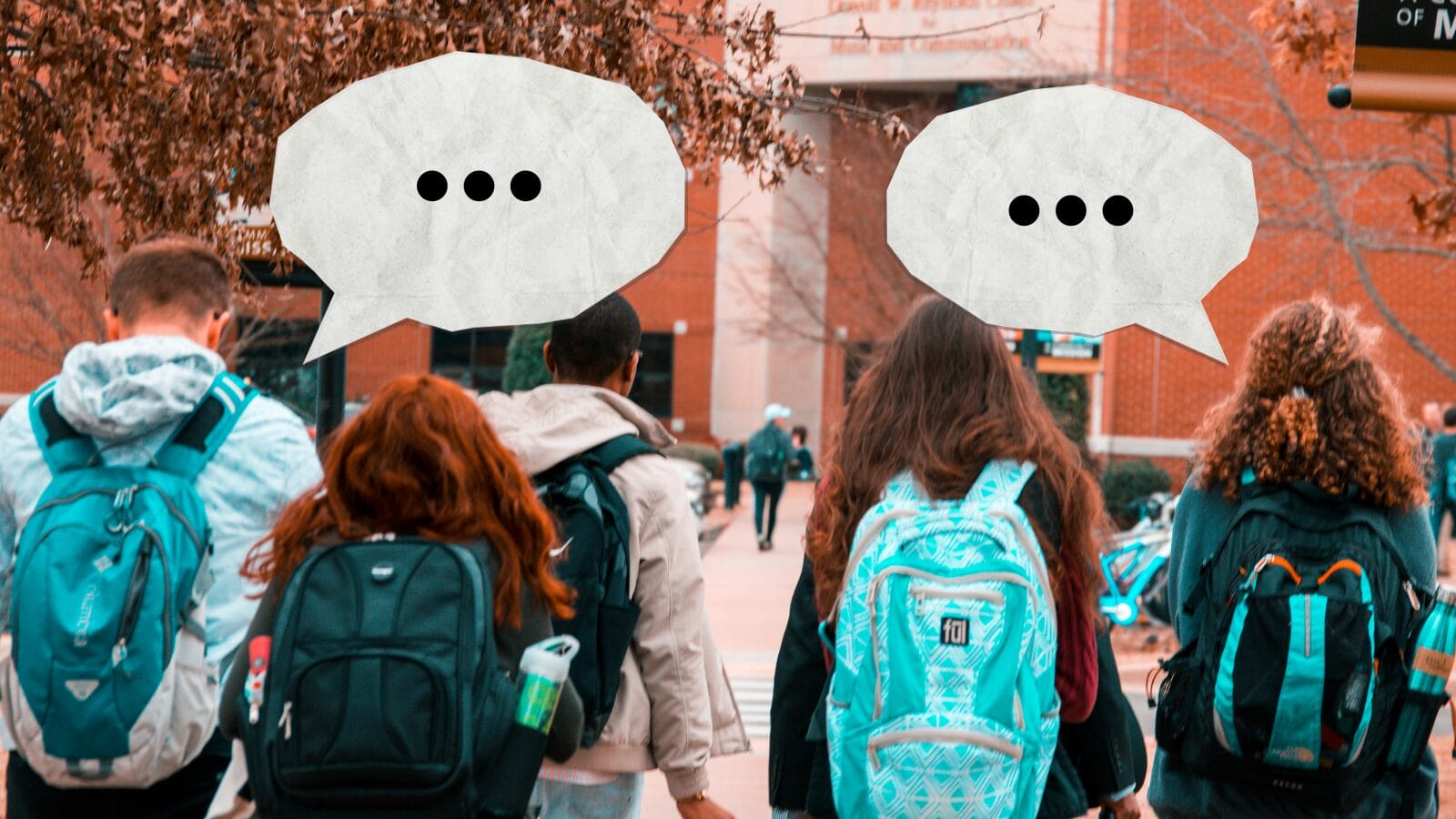
October 7, 2024
By Jenna Fournel, Director of Teaching and Learning
Prefer audio? Listen to this week’s Hooray For Monday podcast to hear Aleta and Jenna discuss the need to ask questions — for our students and ourselves — in learning more about the stories we aren’t being told.

When my children were young, I wrestled with whether hearing news radio was good for them. On the one hand, I wanted them to be informed. On the other hand, much of the news, like today, was not good. When it was on, I tried to encourage my kids to ask questions about what they were hearing.
“What’s a Dreamer?”
“What does LGBTQ mean?”
“Why are they shouting like that?”
“What makes somebody a terrorist?”
“What happens to people when they’re starving?”
I didn’t always have answers to their questions, so we’d do some research together. We’d make connections between the stories we read or heard and the people we knew, the community we lived in, and the experiences we’d had. We talked about what would have to happen to solve the problems we learned about.

As our young people struggle to make sense of events across the globe and at home, teachers are grappling with their own questions about what to do when students encounter big, scary news events.
I’m thinking about this today, on the one year anniversary of Hamas’ October 7, 2023 attacks on Israel. It’s a day filled with unanswered questions about the fate of the hostages who remain in captivity, the road to peace for Israelis and Palestinians who continue to suffer in the ongoing conflict, and the rise in antisemitism in the US and elsewhere.
Do we put this complicated story away in the backpacks as children enter our rooms? Or do we practice building the skills we struggle with as adults – trying to figure out what’s going on in a news cycle that moves as fast as our internet speeds will allow?
In Inspired Teaching’s Speak Truth program, high school students wrestle with the issues that concern them through youth-led discussions. Our goal in these discussions is for students to practice curiosity. Practicing curiosity helps us approach issues with thoughtfulness, avoiding the rush to judgment that gets in the way of true understanding. At the heart of this practice are four questions, rooted in our 4 I’s:
- INTELLECT: What do I need to know in order to understand all sides of this issue?
- INQUIRY: What am I curious about and what questions can I ask my peers to learn more?
- IMAGINATION: What would have to change in order for this issue to become less polarized?
- INTEGRITY: What role can I play in community with others to address this issue moving forward?
We might say, “Wow. I hear you talking about something really important and serious. What do we know for sure about what is happening? How do we know that for sure? What don’t we know for sure? What would we have to do to find out more?”
That might be all we have time for in the moment, but this inquiry normalizes asking questions before jumping to conclusions.
This takes time. It takes comfort with the questions. It takes trial and error and embracing making mistakes. But goodness knows we’re in a season where we’ll need to practice a lot of curiosity. Every day. Over the next few weeks, we’ll share many ways to begin.
For additional insights, resources, and information on Inspired Teaching teacher and youth programming, subscribe to the Hooray For Monday newsletter!
